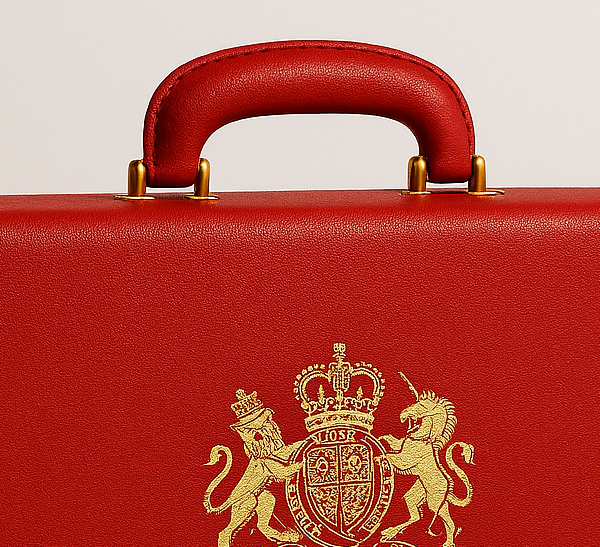Article
Budget 2024 – A Budget for long-term growth
Article
Budget 2024 – A Budget for long-term growth
March 7, 2024
5 minute read
The Chancellor Jeremy Hunt delivered his ‘Budget for long-term growth’ on Wednesday 6 March 2024. His speech promised ‘more investment, more jobs, better public services and lower taxes’.

The Chancellor
Jeremy Hunt delivered his ‘Budget for long-term growth’ on Wednesday 6 March
2024. His speech promised ‘more investment, more jobs, better public services
and lower taxes’.
The Chancellor made
his cuts possible with a series of tax-raising measures. These included a new
regime for non-doms, the abolition of the Furnished Holiday Lettings tax
regime and Multiple Dwellings Relief, alongside a new duty on vaping and
an increase in tobacco duty.
Personal Tax
The basic rate of
tax is 20%. For 2024/25 the band of income taxable at this rate is £37,700 so
that the threshold at which the 40% band applies is £50,270 for those who are
entitled to the full personal allowance.
The basic rate band
is frozen at £37,700 until April 2028. The National Insurance contributions
upper earnings limit and upper profits limit will remain aligned to the higher
rate threshold at £50,270 for these tax years as well.
For 2024/25, the
point at which individuals pay the additional rate of 45% is £125,140.
The personal
allowance
There is a
reduction in the personal allowance for those with ‘adjusted net income’ over
£100,000. The reduction is £1 for every £2 of income above £100,000. This means
that there is no personal allowance where adjusted net income exceeds £125,140.
Tax on dividends
Currently, the
first £1,000 of dividends is chargeable to tax at 0% (the Dividend Allowance).
This will be reduced to £500 for 2024/25.
Individual Savings
Accounts
The government
announced that it is looking to introduce the UK ISA. This will have a new ISA
allowance of £5,000 in addition to the existing ISA allowance, and will provide
a new tax-free savings opportunity for people to invest in the UK.
High Income Child
Benefit Charge
The government is
increasing the income threshold at which HICBC starts to be charged from
£50,000 to £60,000 from April 2024. The rate at which HICBC is charged will be
halved from 1% of the Child Benefit payment for every additional £100 above the
threshold to 1% for every £200. This means that Child Benefit will not be
withdrawn in full until individuals have ‘adjusted net income’ of £80,000 or
more.
In addition, the
government plans to administer the HICBC on a household rather than individual
basis by April 2026, with a consultation in due course.
Non-UK domiciled
individuals
From 6 April 2025,
the current remittance basis of taxation for non-UK domiciled individuals will
be abolished and replaced with a residence-based regime. Individuals who opt
into the new regime will not pay UK tax on any foreign income and gains arising
in their first four years of tax residence, provided they have been non-tax
resident for the last ten years. Anyone who has been tax resident in the UK for
more than four years will pay UK tax on their foreign income and gains.
The government will
also introduce the following transitional arrangements for existing non-UK
domiciled individuals claiming the remittance basis:
The government will
also reform Overseas Workday Relief for employment duties carried out overseas.
Employment
Following the
Autumn Statement in 2023 the government cut the main rate of Class 1 employee
NICs from 12% to 10% from 6 January 2024. The government has further cut the
main rate of Class 1 employee NICs from 10% to 8% from 6 April 2024.
The government will
amend Class 2 self-employed NICs from 6 April 2024. This means that, from 6
April 2024:
The government will
cut the main rate of Class 4 self-employed NICs from 9% to 6% from 6 April
2024.
The government is
extending the employer NICs relief for businesses hiring qualifying veterans
for a further year from April 2024 until April 2025. This means that employers
will continue to pay no employer NICs up to annual earnings of £50,270 for the
first year of a qualifying veteran’s employment in a civilian role.
The government has
accepted in full the recommendations of the Low Pay Commission and announced
increased rates of the National Living Wage (NLW) and National Minimum Wage
(NMW) which will come into force from 1 April 2024. In addition, from 1 April
2024 the NLW will be extended to 21 and 22 year olds. The rates which will
apply from 1 April 2024 are as follows:
Furnished Holiday
Lettings
The Furnished
Holiday Lettings (FHL) tax regime will be abolished from April 2025. Draft
legislation is to be published and will include anti-forestalling measures that
will apply from 6 March 2024. The effect of abolishing the rules will be that
short-term furnished holiday lets and longer-term residential lets are treated
the same for tax purposes and individuals will no longer need to report the two
income streams separately.
Research and
Development relief
As announced in the
Autumn Statement 2023, the existing Research and Development Expenditure Credit
(RDEC) and SME schemes will be merged, with expenditure incurred in accounting
periods beginning on or after 1 April 2024 being claimed in the merged scheme.
The rate under the merged scheme will be set at the current RDEC rate of 20%.
A number of other
changes will apply to the new regime from April 2024, including that R&D
claimants will no longer be able to nominate a third-party payee for R&D
tax credit payments, subject to limited exceptions.
Capital Taxes
Higher rates apply
for certain gains, mainly chargeable gains on residential properties, with the
exception of any element that qualifies for Private Residence Relief. These
rates are changed from 18% and 28% in 2023/24 to 18% and 24% in 2024/25.
The government has
announced that the CGT annual exempt amount will be reduced from £6,000 to
£3,000 from 6 April 2024.
The VAT
registration threshold
After many years of
having been frozen, the government will increase the VAT registration threshold
from £85,000 to £90,000 and the deregistration threshold from £83,000 to
£88,000 from 1 April 2024.
Additionally, the alcohol duty freeze will be extended until February 2025, The temporary 5p cut in fuel duty rates will be extended until March
2025 and the planned inflation increase for 2024/25 will not take place and, a new duty on vaping products will be introduced from 1 October 2026. The
government will also introduce a one-off tobacco duty increase from the same
date.
Related content
Need expert advice?
Speak to an expert for advice on
+44-1865 292200 or get in touch online to find out how Shaw Gibbs can help you
Email
info@shawgibbs.com
Need expert advice?
Speak to an expert for advice on
+44-1865 292200 or get in touch online to find out how Shaw Gibbs can help you
Email
info@shawgibbs.com




